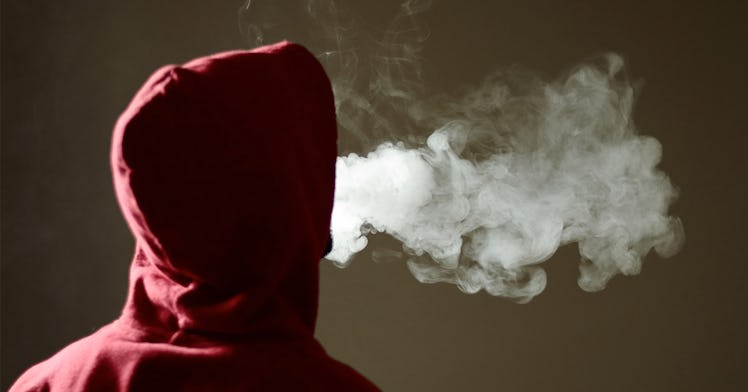The Truth About Legalized Marijuana’s Impact On Teens And Kids
Does legalizing weed hurt kids? The evidence so far leans toward 'no.' There are certainly caveats.

Seventeen states have now legalized recreational marijuana, and more are on their way. In 2020, 68 percent of U.S. residents supported legalization, the highest count yet in a rising trend. But many are still against it. The opposition argues that legalizing marijuana hurts kids and teens, largely by increasing their access to cannabis and leading more to smoke. But the science suggests this isn’t the case.
“We found if anything, teen marijuana is actually going down in states that legalized for recreational purposes,” says Mark Anderson, Ph.D., an economist at Montana State University who studies teen marijuana use.
Anderson’s team analyzed survey data from more than 1.4 million high school students. They found that after a state made recreational weed legal, teenagers had an eight percent decrease in the odds of using pot in the past 30 days and a nine percent decrease in frequent use, according to a 2019 study published in JAMA Pediatrics.
“Street-level dealers are being replaced by dispensaries and establishments that require proof of age,” Anderson suggests as a possible reason for the decline.
Although other studies back up Anderson’s findings, some conflict with them, such as a recent study that found that middle schoolers and high schoolers in California used weed more after legalization. “The jury’s still a little bit more out on this, simply because recreational marijuana laws are relatively new,” Anderson says. That being said, “So far, the literature that’s been published on recreational marijuana laws that seems to be statistically rigorous is not suggesting that there’s been an increase.”
Despite this evidence, the American Academy of Pediatrics (AAP) recommends keeping weed illegal: “The AAP opposes legalization of marijuana because of the potential harms to children and adolescents,” according to the organization’s 2015 policy statement. Admittedly, there was much less data available back when the AAP released its recommendations, but it hasn’t issued an update yet. “While I would say the intentions are good, the policy recommendations are perhaps somewhat misguided,” Anderson says.
Increased teen marijuana use isn’t the only potential problem. In states that have legalized weed, kids go to the hospital more often because of run-ins with pot, although these medical emergencies are still uncommon. For example, visits to the adolescent emergency department and urgent care at a children’s hospital increased from 1.8 per 1,000 visits before legalization to 4.9 per 1,000 afterward, even as rates of adolescent use stayed about the same, according to a 2018 study in Colorado.
Cannabis — whether ingested accidentally or smoked on purpose — is much riskier to kids and teens than it is to adults. (Read Fatherly’s answer to the question is weed bad for you as an adult.) Use during adolescence can lead to permanent problems with memory and learning. It can cause difficulty thinking and problem-solving, trouble paying attention, and impaired coordination, according to the Centers for Disease Control and Prevention. In those at high risk, it may trigger psychosis.
Despite common misconceptions, addiction is also a concern. About 1 in 6 teens who repeatedly smoke weed get addicted. And the earlier kids use a substance, the more likely they are to develop a substance use disorder, according to the AAP.
Legalization can also affect kids who don’t get into pot; parents who have kids in the home are about twice as likely to use weed in states where it’s legal. Their children may have a greater risk of exposure to secondhand smoke, which contains toxins and carcinogens and could hurt heart health. Nearly half of kids of parents who smoke have detectable signs of marijuana in their urine, even though 84 percent report never smoking at home, according to a small study in Pediatrics.
Two other arguments against making weed legal are that it will drive up violent crime and car accident rates. But in Washington and California, legalization doesn’t seem to have had an effect on either, and it’s had the added bonus of creating jobs.
Legalization isn’t a simple issue. And researchers won’t understand the true impact of it until we have more data available. With more and more states slated to legalize marijuana over the next several years, getting that data will be easier and easier. Hopefully for children, getting their hands on marijuana will not be.
This article was originally published on